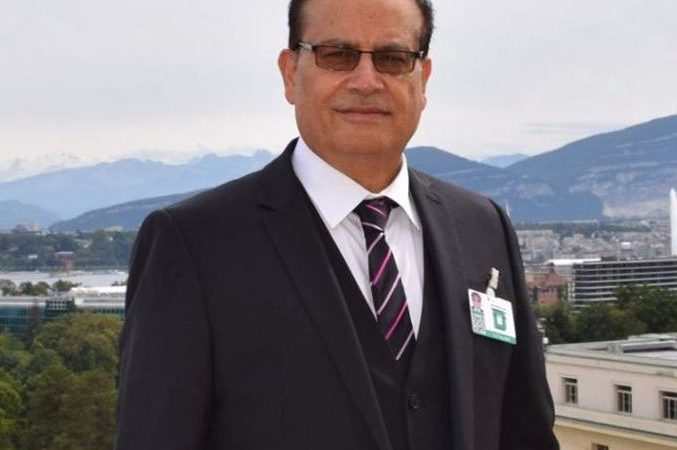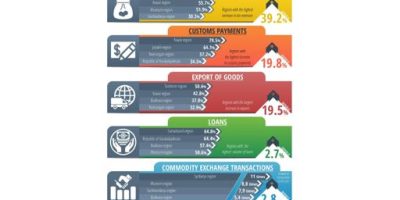Shifting the burden of incompetency

By Qamar Bashir
Whenever our nation grapples with economic and financial challenges exacerbated by the incompetence, inefficiency, and incapacity of our ruling class, the most vulnerable among us bear the heaviest burden. The individuals who already struggle to secure even two meals a day, who cannot fathom the luxury of a single cup of tea, and who lack the means to send their children to school, are advised to subsist on half a roti instead of a full one, to savor half a cup of tea in place of the comforting warmth of a full cup.
While the ruling class, seemingly impervious to the suffering of their fellow countrymen, continues to live in opulent villas abroad, traverse the skies in private jets, and occupy custom-designed offices adorned with luxuries beyond imagination.
In recent times, the very individuals responsible for our nation’s financial management, particularly the former PDM finance minister and later the incumbent caretaker finance minister have issued statements to transfer the burden of their inefficiency, incapacity, and incompetence onto retirees, who have already dedicated over four decades of their lives in service to the government and the public.
This audacious proposition asserts that the weight of pensions has become intolerable for the government and suggested that the only viable solution lies in the formulation of a policy that would, in essence, strip pensioners of their hard-earned entitlements – the pensions they diligently accrued during their years of dedicated service.
What is truly disconcerting is that these statements emanate from none other than the self-proclaimed economic wizard, Mr. Ishaq Dar, a man whose wealth has grown to such astonishing proportions that he himself may not possess an accurate account of it. If even a fraction of the wealth amassed by individuals like him could be repatriated to our country, it could potentially transform our economic and financial landscape, paving the way for a brighter and more prosperous future.
This callous narrative reveals a shocking lack of compassion and an outrageously irrational approach. It implies that the government’s solution is to either slash pensions, impose a time limit on disbursements, freeze adjustments for inflation, or even strip surviving spouses of their rightful pension benefits after a pensioner’s passing.
In this grim scenario, it seems that if these measures fail to miraculously fix the government’s financial outlook, the next steps could entail extreme and unthinkable actions. The government might instruct the defense forces to auction their weapons, insist on our soldiers to stop wearing their uniforms, close down our diplomatic missions abroad, halt government operations, extinguish traffic lights to save electricity, cease fuel purchases for vehicles to cut fuel costs, shut down power and gas production, and ground planes.
In the eyes of our ruling class, the answer to our financial and economic hardship is to strip away the very means of survival from the salaried, working, and middle-class citizens, and now even the pensioners.
Pensioners, in their post-retirement years, often find themselves in the twilight of life. Many have already experienced the erosion of their physical and mental faculties. Despite these personal challenges, they continue to grapple with daunting burdens. They strive to keep the home fires burning, endeavor to fulfill their commitments, such as educating their children, supporting their daughters’ marriages, and securing a peaceful place to reside.
Additionally, they must navigate the financial maze, endeavoring to meet essential needs while coping with the weight of utility bills that have grown burdensome. Yet, what keeps them up at night are not their personal struggles, but the distressing and insensitive remarks of government ministers, amplified by the media. These comments label them as a strain on the national economy and a drain on the government’s treasury.
In their wildest dreams, these retirees might never have anticipated that, after dedicating four decades of their prime years in service to the government, they would be met with anything other than gratitude. Instead, they now face the heart-wrenching reality of being labeled as burdens on the system, with proposals that threaten to strip them of their only means to make ends meet.
It’s become abundantly clear that the path to financial and economic improvement does not hinge on the cruel act of depriving citizens of their right to a dignified life. Instead, it lies in a concerted effort to enhance our systems and invest in vital areas. We should channel resources into education and research and development, promoting innovation and nurturing creativity.
We need to create an environment where people can fully unlock their potential. The solution lies in expanding our exports, enticing foreign investment, fostering entrepreneurial ventures, establishing industrial hubs, enhancing the efficiency and productivity of our businesses, and elevating the quality and demand for our products and services, improving the quality and quantity of our products and services. By adding value to our offerings and creating our own brands, we can tap into new markets and boost our competitive edge. Facilitating easy access to loans for startups will nurture fresh business niches, invigorating our entrepreneurial spirit.
Indeed, the path to financial and economic prosperity also involves a shift in our national focus. Instead of positioning ourselves solely as a security state, we should adopt a stance that seeks peace and cooperation with every nation worldwide. By doing so, we can redirect resources towards building a modern agricultural sector, establishing thriving industrial zones, and enhancing the security and safety of travel to attract global tourism.
Additionally, the creation of a pension fund and investment in saving schemes can not only generate reasonable profits but also serve the nation’s broader financial needs.
Furthermore, emulating successful models like France, where pension reforms raised the retirement age and adjusted qualification criteria, can help manage pension costs effectively. Gradual increases in retirement age, changes in contribution rates for employees and employers, and the implementation of partial pensions or delayed benefits for those choosing to work beyond the standard retirement age can all contribute to a sustainable pension system.
Encouraging government employees to participate in voluntary retirement savings plans and streamlining the consolidation of multiple pension plans into a more efficient system will further reduce administrative burdens and enhance fund management.
These insensitive statements disregard the specific provisions of the Civil Services Act of 1973. According to Section 13 of this act, a civil servant’s retirement from service occurs after completing twenty years of service, thus qualifying for pension and other retirement benefits. Furthermore, Section 19 outlines the entitlements upon retirement, including the right to receive a prescribed pension or gratuity. In the unfortunate event of a civil servant’s passing, whether before or after retirement, their family is entitled to receive a pension, gratuity, or both. These legal provisions are in place to safeguard the welfare and financial security of civil servants who have dedicated their careers to public service. Any attempt to deviate from these established rights would not only be legally questionable but also ethically unjust.
Caring governments prioritize the welfare of not only their retired employees but the entire population, providing unemployment allowances for those temporarily out of work. For instance, in France, every unemployed individual is entitled to receive a consistent amount, such as Euro 900, until they secure gainful employment. Countries like England and France have well-structured pension systems encompassing several key benefits, including the main pension benefit, calculated based on an employee’s salary and years of service. Supplementary pensions are provided by employers, varying according to job titles and years of service. Reversion pensions support surviving spouses, usually amounting to 50% of the deceased spouse’s pension. In cases of disability, invalidity pensions are provided to government employees unable to work. Additionally, governments offer a range of social welfare programs and allowances, such as Pension Credit, Jobseeker’s Allowance, Employment and Support Allowance, Winter Fuel Payment, free healthcare services, vision care, dental treatment, travel cost assistance, disability support, free bus passes, and special considerations for those with disabilities, including free passports.
Pensioners, many of whom are at an advanced age, have shouldered responsibilities and contributed their skills and dedication to the nation. They are owed respect, dignity, and honor, not derogatory labels like “burden” or “parasites.” The pensions they receive are not handouts but were part of a solemn job agreement signed even before their entry into government service.
When government employees embark on their careers, they willingly accept substantially lower salaries compared to their private sector counterparts, fully aware that these reduced wages are offset by the promise of pension and retirement benefits in the future. It’s a mutually agreed-upon arrangement that provides financial security in exchange for their commitment and dedication.
If the government is intent on shifting the burden of its own shortcomings to retired civil servants, it should commence this effort with fresh entrants. The onus is on the government to be transparent, fully disclosing the terms and conditions of employment. It should offer every candidate the opportunity to sign a job contract with a comprehensive understanding of the contract’s provisions, including pension and retirement benefits.
This approach should be consistent and applied uniformly to all state employees, including the judiciary, parliaments, and armed forces. No exceptions. We can be certain that without the assurance of pension and retirement benefits, no sane individual would willingly choose government service. It is high time we acknowledge the invaluable contributions of our civil servants and afford them the respect and security they have earned and deserve.
Qamar Bashir
Press Secretary to the President(Rtd)
Former Press Minister at Embassy of Pakistan to France
Former MD, SRBC
Related News

Trump Tariffs Ruled Unlawful
Qamar Bashir On February 20, 2026, the United States Supreme Court delivered a historic rebukeRead More

Uzbekistan tax revenues show stable growth in January
By: Sultonmurod Ozodov According to оперативные данные from the Tax and Customs Committees, the CentralRead More


Comments are Closed